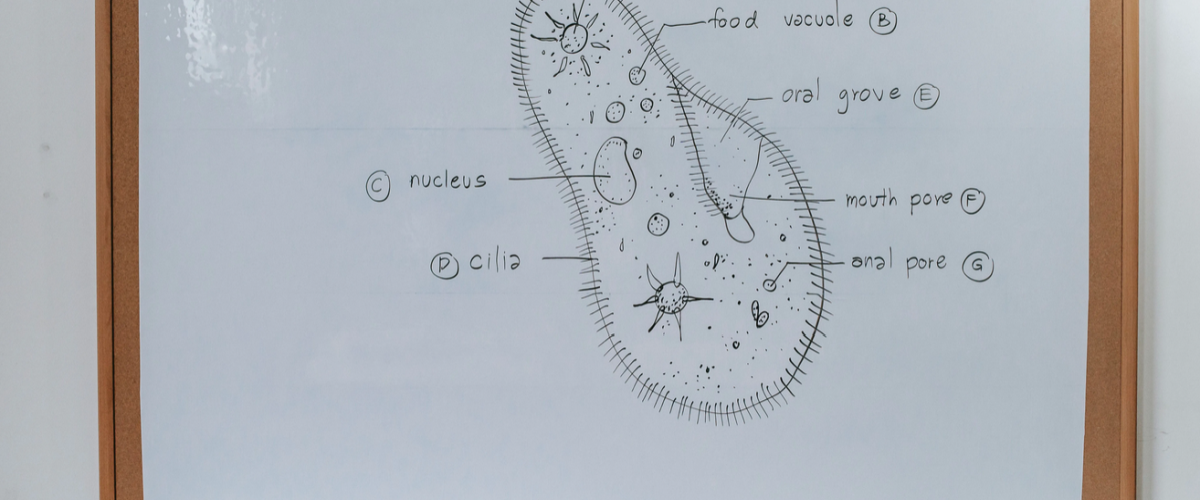In the pursuit of eternal youth and vitality, scientists have turned their attention to a remarkable and fundamental aspect of our biology—telomeres. These protective "caps" at the ends of chromosomes play a crucial role in cell division and overall aging. As we age, telomeres naturally shorten, leading to cell dysfunction, inflammation, and age-related diseases. However, recent research has revealed ways to protect and even lengthen telomeres, offering potential strategies to slow down the aging process.
Telomeres are an important component of DNA and play a vital role in maintaining the integrity and stability of genetic material. These protective caps, located at the ends of our chromosomes and composed of repeated DNA sequences, prevent the loss of genetic information during cell division.
Telomeres play a crucial role in the aging process. As we age, our cells continue to divide, and telomeres gradually shorten each time a cell divides. When telomeres become very short, they activate cellular responses that prevent further division and thus prevent the replication of damaged DNA. This is an important safeguard against the development of cancer cells, as it limits the potential for uncontrolled growth and division.
In addition, shortening of telomeres can also have an impact on the aging process itself. When telomeres reach extremely short lengths, cells enter a state of senescence or cell death and cease the ability to replicate. Progressive shortening of telomeres is associated with cellular aging and the development of age-related diseases, including cardiovascular disease, diabetes, and neurodegenerative diseases
While telomere shortening is a natural process that occurs as we age, certain lifestyle factors and environmental stressors can accelerate this process. Factors such as chronic stress, poor diet, lack of exercise, smoking, and exposure to toxins are associated with accelerated telomere shortening, leading to premature aging and increased susceptibility to age-related diseases.
Telomeres are repetitive DNA sequences that form a protective layer at the ends of chromosomes. They protect against the erosion of essential genetic material during cell division. However, with each cell replication, telomeres naturally shorten. This shortening process is intrinsically linked to aging, as cells reach a point where telomeres become very short, causing cell senescence and ultimately cell death. The progressive shortening of telomeres in dividing cells is associated with the body's overall aging process.
When telomeres become very short, cells enter a stage called cellular senescence. During this stage, cells lose the ability to divide and proliferate, become dysfunctional, and lead to the deterioration of various tissues and organs. This degeneration is evident in age-related diseases such as cardiovascular disease, neurodegenerative diseases, and cancer. Therefore, telomeres act as a biological clock that determines the lifespan of a cell.
The progressive shortening of telomeres is associated with decreased overall health. Telomere length has become an important biomarker for assessing an individual's biological age, which may differ from chronological age. Studies show that people with shorter telomeres have an increased risk of age-related diseases, decreased immune function and higher mortality.
●Obesity: Research shows that high body mass index (BMI) is associated with short telomere length. Individuals with higher overall and abdominal adiposity have shorter telomeres, suggesting that obesity may accelerate the aging process and that shorter telomere length in turn may be a risk factor for increased adiposity.
●Oxidative stress and inflammation: Oxidative stress caused by an imbalance between reactive oxygen species (ROS) and antioxidants can lead to telomere shortening. ROS can damage telomeric DNA, causing activation of repair mechanisms and gradually eroding telomeres. Inflammation is often chronic and can perpetuate oxidative stress and accelerate telomere attrition.
●Mental health: It is known that better mental health greatly contributes to physical health as well. Despite some conflicting reports, there are numerous results supporting a link between shorter telomere length and chronically high levels of perceived stress. Additionally, experiences of trauma, depression, and anxiety can affect telomere length and contribute to premature aging.
●Unhealthy lifestyle: smoking, drinking, unhealthy eating habits, etc.
●Personal genetic makeup: Some people may inherit shorter telomeres, making them prone to hastening the aging process.
●Lack of physical activity: The correlation between physical activity, sedentary behavior and telomere length has been extensively studied
●Lack of sleep

Learn about deficiency symptoms:
●Depressed mood, depressed mood
●Trouble sleeping
●Poor wound healing
●poor memory
●Digestive problems
●Certification barriers
●Poor appetite
Find out why:
●Poor diet: mainly includes a single diet, a diet lacking in nutrients, and bulimia.
●Malabsorption: Certain conditions, such as celiac disease and inflammatory bowel disease, may impair the body's absorption of nutrients.
●Drugs: Certain drugs may interfere with the absorption or utilization of certain nutrients.
●Emotional instability: depression, anxiety.
1. Omega-3 fatty acids
Omega-3 fatty acids have received widespread attention for their wide range of health benefits, primarily related to heart health. However, recent research suggests that these essential fats may also play a crucial role in protecting telomeres. Research published in the Journal of the American Medical Association (JAMA) shows that people with higher levels of omega-3 fatty acids in their blood have longer telomeres, suggesting a potential link between these nutrients and healthy aging.
2. Vitamins and Minerals
As powerful antioxidants, vitamins C and E are known for their role in maintaining overall cellular health and preventing oxidative stress. In addition, folate and beta-carotene as well as the minerals zinc and magnesium show positive effects in preventing oxidative stress and inflammation. A study conducted by the University of California, San Francisco, found that people who regularly consumed higher levels of vitamins C and E had longer telomeres, suggesting that these key vitamins may protect telomeres from damage and help age gracefully.
3. Polyphenols
Polyphenols are naturally occurring chemicals commonly found in fruits, vegetables, and plant foods that have also been shown to have a positive impact on telomere length and aging. A study published in the American Journal of Clinical Nutrition found a link between higher polyphenol intake and longer telomeres. Adding a variety of colorful fruits, vegetables, teas and spices to your diet can help maximize polyphenol intake and potentially support telomere preservation.
4. Resveratrol
Resveratrol, a compound found in grapes, red wine and certain berries, has attracted attention for its anti-aging potential. It activates an enzyme called Sirtuin-1 (SIRT1), which has implications for multiple health benefits, including telomere protection. Animal studies show that resveratrol can increase the activity of telomerase, the enzyme responsible for maintaining telomere length. Although more research is needed, including moderate amounts of resveratrol-rich foods in your diet may help protect and preserve telomeres.
5. Eat a balanced diet rich in antioxidants
Antioxidant-rich foods may have a positive impact on telomere length, based on the lower inflammation associated with higher intakes of fresh fruits, vegetables, legumes, fish, poultry, and whole grains.
a. Berries, including blueberries, strawberries and raspberries, not only delight your taste buds but also offer a wealth of health benefits. Antioxidants in berries neutralize harmful free radicals, reduce oxidative stress and promote telomere stability. And the fruit is rich in antioxidants, vitamins and fiber, which has been linked to improved telomere length and cell health.
b. Including whole grains such as quinoa, brown rice and whole wheat bread in your diet can have a positive impact on telomeres. These complex carbohydrates are rich in fiber, vitamins, minerals and antioxidants. The study found that adding resistant starch to the diet attenuated telomere shortening in colon cells of rats fed red or white meat, suggesting a protective effect of dietary fiber.
C. Green leafy vegetables like spinach, kale, and broccoli are rich in vitamins, minerals, and antioxidants that help fight oxidative stress and inflammation. By doing so, they have the potential to support telomere length and integrity.
d. Nuts and seeds, including almonds, walnuts, chia seeds, and flaxseeds, are excellent additions to a telomere-supporting diet. These plant-based powerhouses are packed with healthy fats, fiber, and an array of vitamins and minerals that offer a variety of health benefits. Research shows that eating nuts and seeds may be associated with longer telomere length and lower risk of chronic disease.
1. Physical activity
Regular exercise is convincingly linked to longer telomere length. Engaging in moderate-intensity aerobic activity, such as jogging or cycling, not only promotes overall health but also promotes telomere maintenance. Exercise helps reduce oxidative stress and inflammation, both of which can lead to shortened telomeres.
2. Diet and nutrition
Eating a healthy, balanced diet rich in antioxidants, vitamins, and omega-3 fatty acids can have a positive impact on telomere length. Antioxidants help fight oxidative stress, a major cause of telomere erosion. Foods including fruits, vegetables, whole grains, and lean proteins can promote healthy telomeres.
3. Stress management
Chronic stress is associated with accelerated telomere shortening. Incorporating stress management techniques such as meditation, yoga, or mindfulness practices can effectively reduce stress levels, potentially slowing telomere degradation. Reducing stress is critical to maintaining optimal telomere health.
4. Sleep quality
Adequate sleep is critical to many aspects of our health, and its impact on telomeres is no exception. Poor sleep quality and duration are associated with shortened telomere length. Make an effort to maintain a consistent sleep schedule and practice good sleep hygiene to optimize your rest and telomere health.
5. Smoking and drinking
Not surprisingly, harmful lifestyle choices such as smoking and excessive alcohol consumption are strongly associated with shorter telomeres. Both habits produce oxidative stress, inflammation, and DNA damage that directly contribute to telomere erosion. Quitting smoking and reducing alcohol consumption can help maintain telomere length and overall cell health.
Q: Can certain diseases affect telomere length?
A: Yes, certain diseases, particularly those associated with chronic inflammation or oxidative stress, can accelerate telomere shortening. Examples include cardiovascular disease, diabetes, obesity, and autoimmune disorders. Additionally, DNA-damaging factors like radiation and exposure to toxins may also lead to telomere attrition.
Q: Is telomere length solely responsible for the aging process?
A: While telomere length is a critical factor in cellular aging, it is not the sole determinant of the overall aging process. Other genetic and environmental factors, such as epigenetic changes, lifestyle choices, and individual health conditions, can significantly influence how our bodies age. Telomere length serves as a biomarker of cellular aging but is just one piece of the complex aging puzzle.
Disclaimer: This article is for general information only and should not be construed as any medical advice. Some of the blog post information comes from the Internet and is not professional. This website is only responsible for sorting, formatting and editing articles. The purpose of conveying more information does not mean that you agree with its views or confirm the authenticity of its content. Always consult a health care professional before using any supplements or making changes to your health care regimen.
Post time: Oct-08-2023








